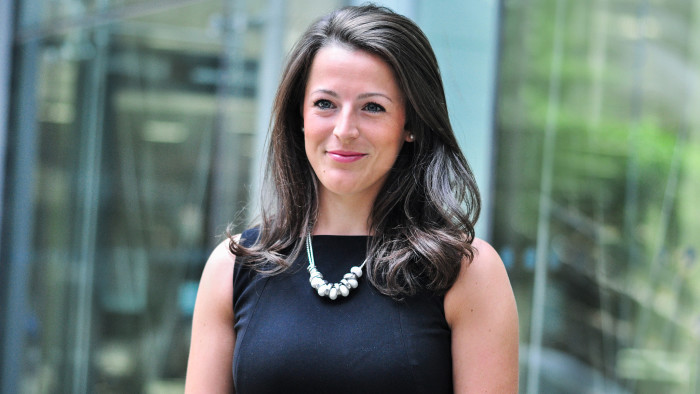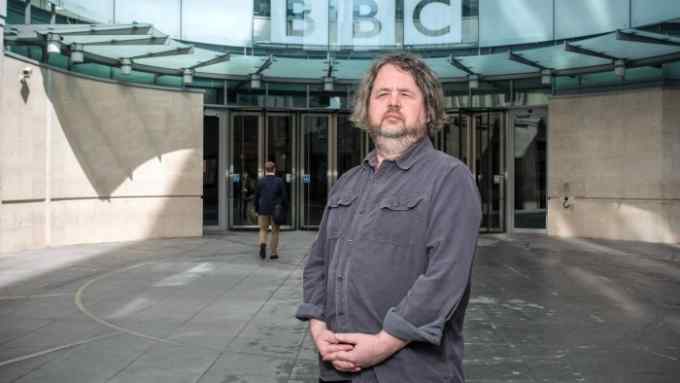‘I look fine and don’t want to give signals that I am struggling’

Roula Khalaf, Editor of the FT, selects her favourite stories in this weekly newsletter.
To look at me, you wouldn’t know that there is anything wrong. I have an invisible disability and live with pain, all day, every day. It feels like my brain is in a clamp that is tightening.
I had a stroke when I was 22 years old, which was caused by a brain tumour that haemorrhaged. The tumour was benign but at risk of future bleeding, so I had surgery to remove it, which damaged the nerves and resulted in a chronic pain condition. The immune system has also been affected, so I get ill a lot, and feel very, very tired.
In my third year of university at the time of the surgery, I was on a path from a work perspective, having worked at Deloitte during my gap year and university holidays. I had already applied for a graduate role in corporate finance.
After treatment I went back to university to finish my degree, but made myself sick and had to live with my parents for a year.
I started back at work full time in 2010 in the restructuring services team, but I was falling over on the way to work and turning up with blood on my face. I tried to hide it and pretend that everything was OK. I just wanted to go back to normal, but after eight months, I signed off ill.
After 18 months, I felt ready to return and emailed the partners, who offered a phased return into the student recruitment team for three hours a day, three days a week.
People didn’t ask me about my health, probably because of their own awkwardness. There were rumours of a skiing accident or a shark attack.
I am very open and honest with my managers about the condition. But because it shows no sign of changing, it is really easy to sound like a broken record and I feel like a massive burden.
It is hard because I look fine and don’t want to give signals that I am struggling.
Because of the size of Deloitte, the people I work with are always changing, so no one has the time to hear about the condition and what I need. They are not consciously being difficult, they just don’t know I might have a requirement and are treating me as normal.
Financially, there is an impact because I can’t work full time. My career progression has suffered. The type of work of is very different from what I was going to do — I wanted to be a partner in my early 30s. I see the people I joined with and how their careers are moving, and get a twinge of “that was meant to be me”.
If you have an invisible disability at work, it helps to talk about it. See other people’s ignorance as an opportunity to educate. Use occupational health, human resources and peer support. It is helpful to find an ally — someone who is more senior who can look out for you.
Find out what your employer offers, such as flexible working, and make the most of it. Employers generally do not know what you need and they are not mind-readers — and nor should they be. Take responsibility for what works and doesn’t work for you and be clear and firm about that.
It was hugely lucky that I had a track record with the firm and that it is big enough to be flexible. With a smaller employer there might not be enough roles.
Being able to go to work and having that small piece of my identity continue has helped with my recovery and sense of worth and outlook. I work really hard for the firm, but it does everything it can for me. I will remain eternally grateful they did not give up on me.
I am now on maternity leave. Having a baby has been another challenge for my health.
In September, I will return to a new role, having pitched it to my chief executive.
I’ll be delivering a programme of wellbeing sessions on themes such as rethinking success, burnout and anxiety, after winning an impact award for a pilot scheme.
I am a qualified teacher on wellness in the workplace and have a yoga therapy diploma. I would never have taken these qualifications if it were not for my disability.
It has taken six years to get here. I still feel a real vulnerability and very exposed. Others see someone confident and clear, but there are still times where I burst into tears.
My condition means I have a less narrow view of work and success and ambition. I still have goals. But a genuine goal is in six months’ time, being able to be at work for three days a week and look after my little girl.

Comments